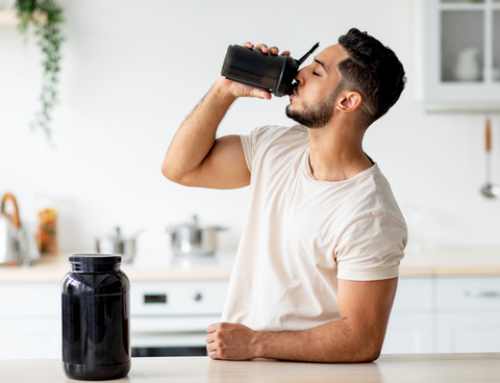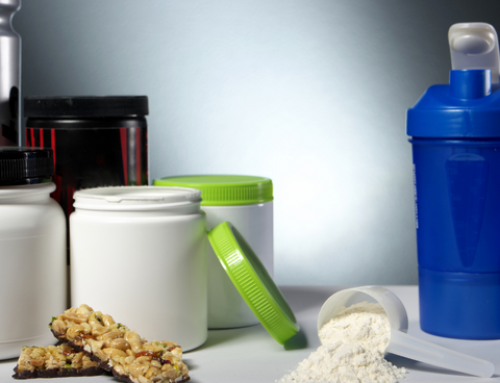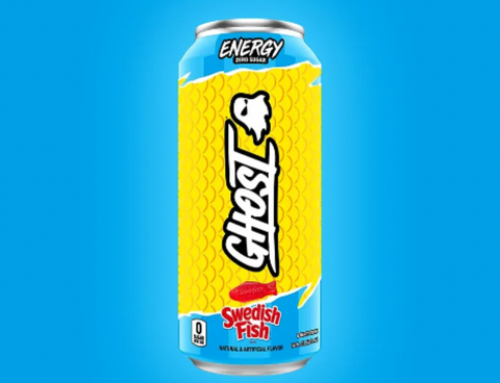Workout Supplements: Do You Really Need Them?
My high school and collegiate athletes routinely ask me which workout supplements they should take. Then, one of two things happens: the theme music from Jaws reverberates through my head; or I have to resist the urge to pound my head into a wall.
Workout supplements are progress enhancers, not progress starters. If your current training and nutritional approach are not giving you the results you’re after, taking a pill or powder won’t be the “x” factor.
This is not to say that all workout supplements are useless (more on this below). But, many young trainees are too eager to assume they are a quick fix rather than address the real issues: they haven’t put in enough time under the bar; and they barely eat enough to keep a hummingbird alive.
The word “supplement” should only enter your vocabulary after you have had at least a full year of consistent and progressive strength training.
RELATED: The Truth About Muscle-Enhancing Supplements
We can argue about which type of training is best. However, a few common denominators form the basis of every beginner’s training program.
- Emphasize compound movements, such as Squats, Deadlifts, Chin-Ups, Push-Ups and Lunges.
- Follow either a three-day per week full-body approach, or a four-day per week upper- and lower-body split.
- Always focus on proper technique.
- Continue to challenge yourself with progressive overload and progressions.
Here’s an easy litmus test: if you can’t perform at least five (for boys) or one (for girls) full-range-of-motion, bodyweight Chin-Ups, then you are weak.
Is it a lack of nutritonal supplements that’s hindering your progress, or the fact that your training program is ineffective? It’s a serious question and one you need to ask yourself.
As for nutrition, I’m always amazed at how many teenage boys believe that it’s difficult to gain weight. They see their skinny frames and think that taking a Mass Gainer 3000 Ripped Abzzzz formula is the answer.
When someone asks me about the best way to gain weight, my first response is always, “What did you have for breakfast this morning?”
Typically, I get nothing more than a bunch of “ums” and “uhs.” And no, a Pop Tart is not breakfast—although it is better than nothing.
If you’re not making an effort to eat what’s arguably the most important meal of the day, you again have no business asking about supplements.
All you need are calories! Part of my job is to help my athletes choose healthy foods that will give them the calories they need to get bigger and stronger. Here are my “go-to” recommendations:
- Protein: whole eggs, (grass-fed) beef, chicken, turkey, fish and yogurt.
- Carbohydrate: 100 percent rolled oats, potatoes (all varieties), rice (all varieties), fruits and vegetables.
- Fat: butter, coconut oil, nut butters, nuts/seeds, game meat, olive oil.
If you take care of your training and nutrition, then you can consider supplementation to give your gains an extra boost. Here are my top three:
Fish Oil
A source of Omega-3 fatty acids, which help reduce inflammation, improve heart health and improve joint health.
Vitamin D
Alleviates or reduces chronic fatigue, seasonal depression, joint pain, osteoporosis and uncontrollable weight gain.
If you’re frequently exposed to the sun (the main source of vitamin D) in a warmer climate, you don’t need to worry about taking additional vitamin D. However, vitamin D supplementation is often necessary in colder climates where you spend more time indoors.
Note: Make sure you consult with a physician before supplementing with vitamin D.
Protein Powder
Amino acids from protein are the building blocks of muscle. It’s essential to have a sufficient supply of protein after a workout so your muscles can use it to recover and get bigger and stronger.
I recommend food-based sources for the majority of your protein. But in a pinch, protein powder is a safe and viable option.
Read more:
RECOMMENDED FOR YOU
MOST POPULAR
Workout Supplements: Do You Really Need Them?
My high school and collegiate athletes routinely ask me which workout supplements they should take. Then, one of two things happens: the theme music from Jaws reverberates through my head; or I have to resist the urge to pound my head into a wall.
Workout supplements are progress enhancers, not progress starters. If your current training and nutritional approach are not giving you the results you’re after, taking a pill or powder won’t be the “x” factor.
This is not to say that all workout supplements are useless (more on this below). But, many young trainees are too eager to assume they are a quick fix rather than address the real issues: they haven’t put in enough time under the bar; and they barely eat enough to keep a hummingbird alive.
The word “supplement” should only enter your vocabulary after you have had at least a full year of consistent and progressive strength training.
RELATED: The Truth About Muscle-Enhancing Supplements
We can argue about which type of training is best. However, a few common denominators form the basis of every beginner’s training program.
- Emphasize compound movements, such as Squats, Deadlifts, Chin-Ups, Push-Ups and Lunges.
- Follow either a three-day per week full-body approach, or a four-day per week upper- and lower-body split.
- Always focus on proper technique.
- Continue to challenge yourself with progressive overload and progressions.
Here’s an easy litmus test: if you can’t perform at least five (for boys) or one (for girls) full-range-of-motion, bodyweight Chin-Ups, then you are weak.
Is it a lack of nutritonal supplements that’s hindering your progress, or the fact that your training program is ineffective? It’s a serious question and one you need to ask yourself.
As for nutrition, I’m always amazed at how many teenage boys believe that it’s difficult to gain weight. They see their skinny frames and think that taking a Mass Gainer 3000 Ripped Abzzzz formula is the answer.
When someone asks me about the best way to gain weight, my first response is always, “What did you have for breakfast this morning?”
Typically, I get nothing more than a bunch of “ums” and “uhs.” And no, a Pop Tart is not breakfast—although it is better than nothing.
If you’re not making an effort to eat what’s arguably the most important meal of the day, you again have no business asking about supplements.
All you need are calories! Part of my job is to help my athletes choose healthy foods that will give them the calories they need to get bigger and stronger. Here are my “go-to” recommendations:
- Protein: whole eggs, (grass-fed) beef, chicken, turkey, fish and yogurt.
- Carbohydrate: 100 percent rolled oats, potatoes (all varieties), rice (all varieties), fruits and vegetables.
- Fat: butter, coconut oil, nut butters, nuts/seeds, game meat, olive oil.
If you take care of your training and nutrition, then you can consider supplementation to give your gains an extra boost. Here are my top three:
Fish Oil
A source of Omega-3 fatty acids, which help reduce inflammation, improve heart health and improve joint health.
Vitamin D
Alleviates or reduces chronic fatigue, seasonal depression, joint pain, osteoporosis and uncontrollable weight gain.
If you’re frequently exposed to the sun (the main source of vitamin D) in a warmer climate, you don’t need to worry about taking additional vitamin D. However, vitamin D supplementation is often necessary in colder climates where you spend more time indoors.
Note: Make sure you consult with a physician before supplementing with vitamin D.
Protein Powder
Amino acids from protein are the building blocks of muscle. It’s essential to have a sufficient supply of protein after a workout so your muscles can use it to recover and get bigger and stronger.
I recommend food-based sources for the majority of your protein. But in a pinch, protein powder is a safe and viable option.
Read more:












